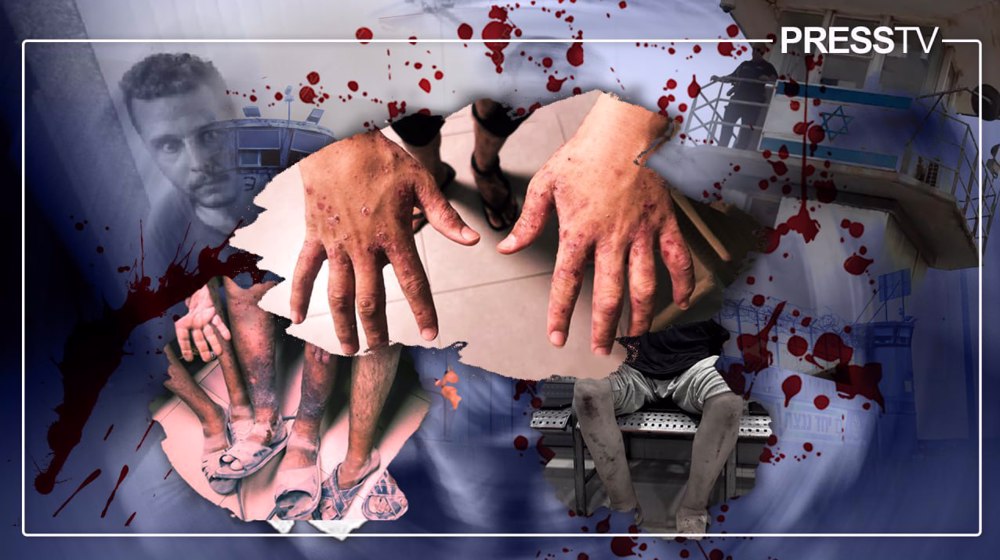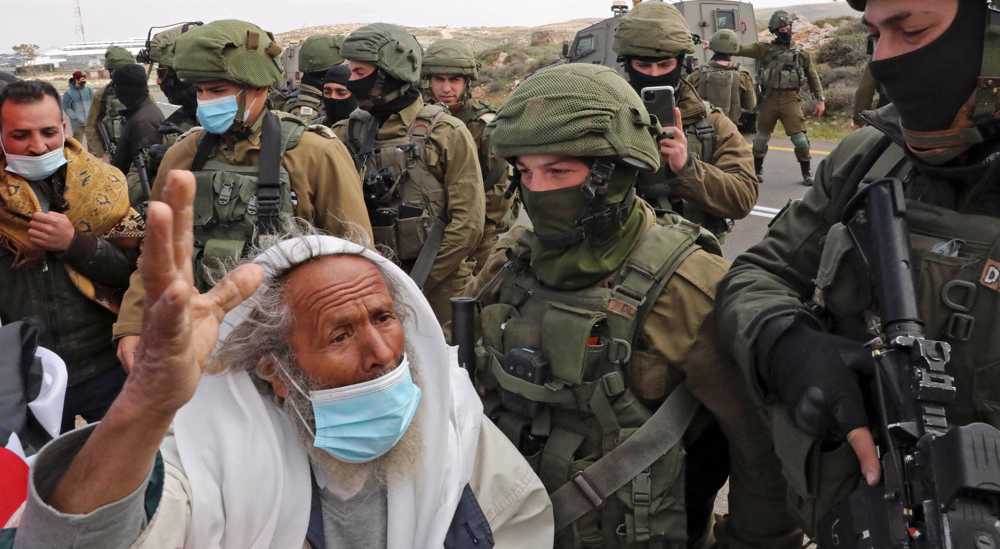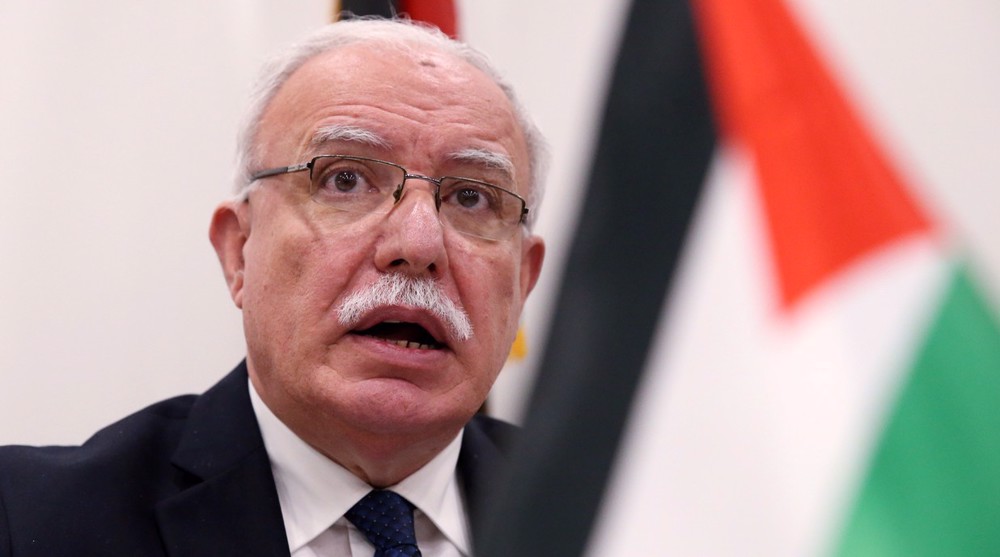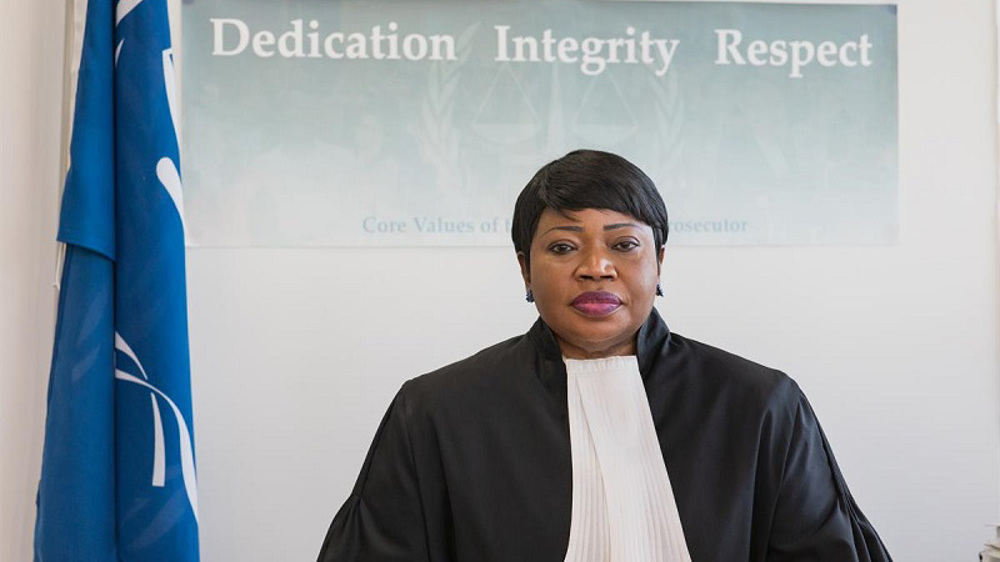Netanyahu appears in corruption trial as protesters taunt ‘Crime Minister’
The Israeli regime’s Prime Minister Benjamin Netanyahu has appeared in court facing long-standing charges of corruption and “illegitimate use” of his power to win favors from media moguls.
“The relationship between Netanyahu and the defendants became currency, something that could be traded,” lead prosecutor Liat Ben-Ari said on Monday during opening arguments as he presented the so-called Case 4000 about the premier’s ties with the owners of a news website.
“This currency could distort a public servant’s judgment,” Ben-Ari added, further insisting that the regime’s top executive had misused “the great governmental power entrusted to him, among other things to demand and derive improper benefits from owners of major media in Israel in order to advance his personal affairs - including when he faced his desire to be re-elected.”
Netanyahu, who is charged with bribery, fraud and breach of trust in the first such trial of a sitting Israeli prime minister, has denied all wrongdoing, portraying himself as the victim of a politically motivated witch-hunt.
Netanyahu came to Jerusalem District Court in a dark suit and black protective mask as scores of protesters – who refer to him as “Crime Minister” – taunted him by shouting slogans against his policies. His supporters also showed up outside the court building.
Judges allowed Netanyahu to leave the courtroom after opening arguments, when the witness testimony begins.
No quick resolution of his trial, which now enters a more intensive, evidentiary phase, is anticipated with a ruling several months away.
The hawkish prime minister would not be compelled to resign from his post unless he is convicted with all appeals exhausted, which could take several years.
The development came as the Israeli regime’s President Reuven Rivlin began consulting with party leaders on who might form the next coalition government -- a toss-up after the fourth inconclusive election in less than two years was held on March 23, giving neither Netanyahu nor his rivals a clear mandate.
Palestinian groups, meanwhile, reacted to the results of the election, saying they hold out little hope for a change in Tel Aviv’s policies toward Palestinians following the vote.
Amid speculations that the latest poll would result in the formation of one of the most right-wing Israeli coalitions, Hazem Qassem, spokesman for the Palestinian resistance group of Hamas, called on Palestinians to adopt a united policy to confront increasing Israeli extremism.
This is while Netanyahu's right-wing Likud party finished first, winning 30 seats in the 120-member parliament, but his ability to form a stable governing coalition is precarious, a reality that has plagued him for several years.
Rivlin began two days of consultations with party officials on Monday to determine who has a plausible path towards a 61-seat majority, in a parliament bitterly divided between those who back Netanyahu and those committed to ending his 12-year rule.
Moreover, it appears far from certain that the anti-Netanyahu bloc can unite, raising the prospect of a fifth election by the embattled regime in less than three years.
VIDEO | Gaza ceasefire to be put in place under resistance conditions
Hot water and sewage: Palestinians share harrowing tales of torture in Israeli prisons
VIDEO | Thousands evacuated in Ethiopia amid earthquakes, volcanic eruption fears
Revealed: Israeli ministers eye restoration of illegal settlements in Gaza through genocide
How Los Angeles’ pistachio tycoons facilitated and profited from wildfires
Iraqi PM: Iran was in Syria to fight terrorism; presence requested by Damascus
Hamas: Israel's massacre in Jenin camp won’t break resistance
60 bodies recovered from abandoned South African gold mine: Police












 This makes it easy to access the Press TV website
This makes it easy to access the Press TV website